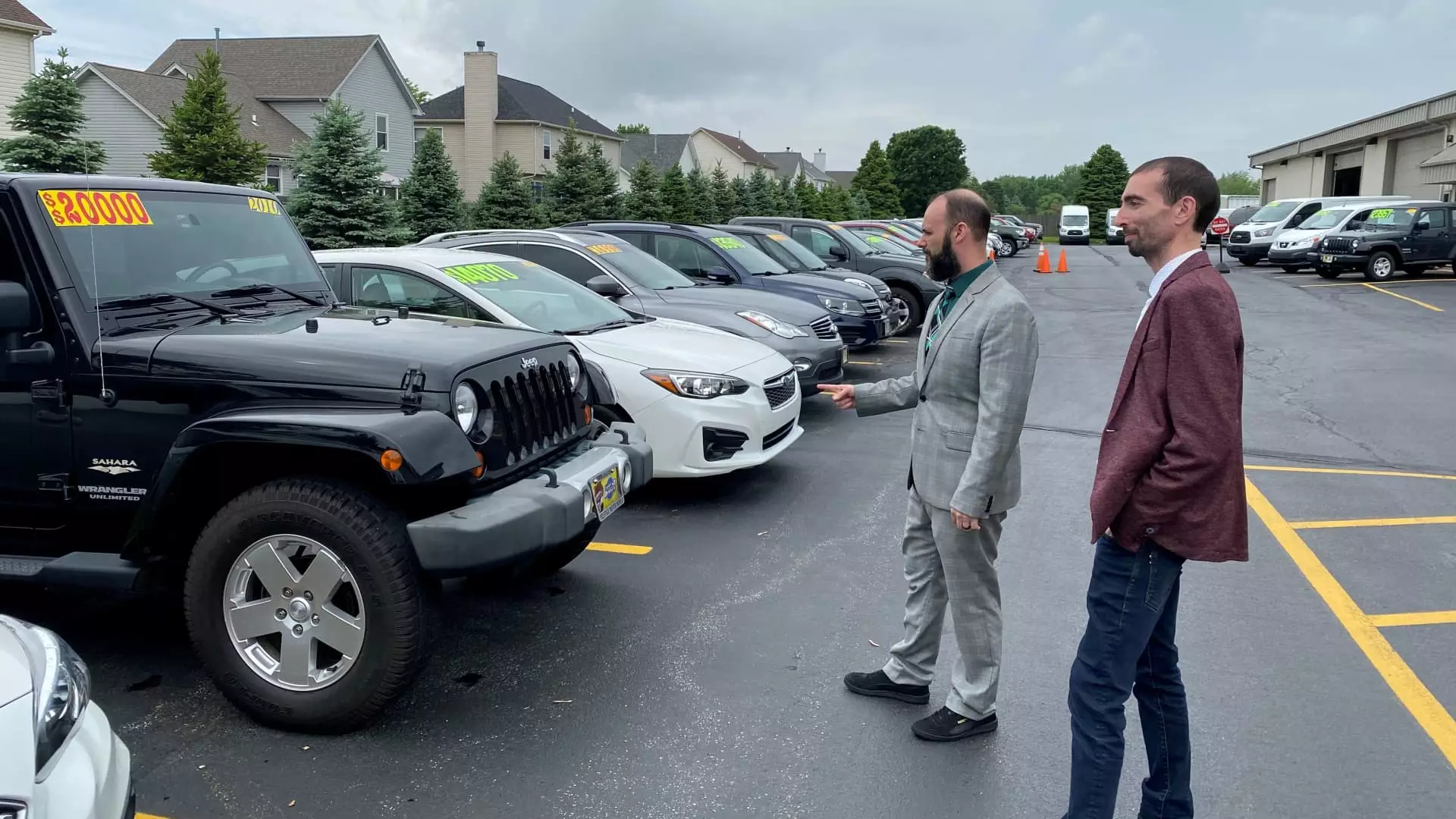As we approach 2025, U.S. auto dealers are experiencing a wave of optimism, largely driven by the recent political developments surrounding President-elect Donald Trump’s return to office. According to the “Q4 2024 Dealer Sentiment Index” conducted by Cox Automotive, this renewed positivity is accompanied by favorable trends in interest rates and enticing sales incentives offered by automobile manufacturers. Overall, the sentiment is tilting towards a more favorable outlook for traditional vehicle sales, suggesting that cars with internal combustion engines may continue to dominate the market.
The optimism is quantified through the market outlook index which surged from a score of 42 to 54 in just one quarter. This notable increase signifies that a significant number of dealers believe conditions in the auto market will improve over the short term. With historical context, the index’s rise is a breath of fresh air compared to a year ago when dealer sentiment hit a concerning low of 41, indicating a challenging market landscape that had many dealers feeling apprehensive about their prospects.
Concerns Over Electric Vehicle Sales
While optimism surrounding traditional vehicle sales is palpable, the same cannot be said for electric vehicle (EV) sales. The same Cox report indicated a troubling trend: a majority of dealers predict a further decline in EV sales over the upcoming quarter. The concerns stem not from a lack of consumer interest but rather from apprehensions about the potential policy shifts under the forthcoming Trump administration. Specifically, dealers worry about the fate of federal incentives designed to promote EV adoption, including the significant consumer tax credits of up to $7,500 that have historically played a crucial role in encouraging buyer participation in the EV market.
Cox Automotive’s Chief Economist, Jonathan Smoke, emphasized the importance of these tax credits, stating that they have had a measurable impact on both new and used vehicle markets. Without such incentives, the sustainability of growth in the EV segment remains questionable. This illustrates the significant contrasts in dealer sentiment about traditional vehicles versus electric options as the industry looks to the future.
Interestingly, the political climate in the United States has also played a pivotal role in dictating dealer perceptions. Following the November elections, a marked decrease in the percentage of dealers indicating that the political landscape was adversely affecting their businesses provides a clearer picture of shifting sentiments. Only 35% of surveyed dealers cited politics as a concern, notably down from 44% in the prior quarter. This could indicate a growing confidence among dealers that the uncertainties that plagued them during the previous election cycle are beginning to fade.
Furthermore, shares of publicly traded auto dealer groups reflect this bubbling optimism. Companies such as AutoNation, Lithia Motors, and Sonic Automotive have seen their stock prices increase by 15% to 22% over the past year, while Group 1 Automotive stands out with an impressive 40% rise. These figures underscore a collective belief among investors that the auto market may be experiencing a renaissance, notwithstanding the ongoing challenges in the EV sector.
As dealers look toward 2025, the mixed signals between traditional vehicle sales and electric vehicle sales present a challenge. On one hand, the traditional market is buoyant, but on the other, the future of EV sales is mired in uncertainty largely due to anticipated policy changes that could dampen growth. For dealers navigating this landscape, adapting to the evolving preferences of consumers while staying attuned to legislative developments will be critical.
The optimism surrounding the U.S. auto market is tinged with caution, particularly in the electric vehicle segment which is at a critical juncture. As political winds shift, and interest rates fluctuate, dealers must strategically position themselves to capitalize on both established and emerging trends within the automotive industry. The road to 2025 will require careful navigation as they embrace change while remaining grounded in the realities of today’s marketplace.


Leave a Reply